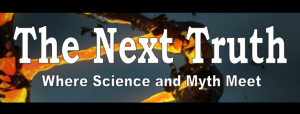Scientists must be free to learn, to speak, to challenge anything new and to fail.
By Maria Anna van Driel, www.nextttruth.com
Scientists must be free to learn, to speak and to challenge anything new and to fail. WAIT, WHAT? NO! Yes, scientist must have the freedom to fail an experiment or two in the same way you did in school failing that particular math or literature test. But as I have once said to a close friend of mine, who is a scientist, “you can only fail when you give up before even trying“.
So, even a failed hypothesis teaches us something. The best way I can explain that is through my own adventures as a science journalist working in the midst of scientists from all over the world and from varied institutes.
As I started writing as a science journalist several years ago, and yes, you may start laughing right now but I was scared, really scared! I was scared of these super intellectuals with their big brains, their big books, their big, unfamiliar words and titles I had never hear off before. But as conversations and interviews with these brilliant scientists from the CERN, the Max Planck Institute, SETI, the University of Harvard, Oxford, Warwick, Colorado Springs just to give you some examples, unfolded, I quickly learned that these brilliant scientists were nervous, even afraid to talk to me. Maybe even thinking; “Oh my god, she is going to misinterpret everything I say, rip me apart before I am truly death and in the process my research!”
This idea bothered me immensely. Knowing that many of our scientists are writing down their best ideas and then hide it away in the most remote drawer they can find because it is too “farfetched”. I felt I had to do something with this. So, I set aside my fear for this feeling of failing and started talking to these scientists via e.g Skype and email…no talk about complex research findings or computer data from new experiments.
It took me a long time before I gained the trust of some of these genius minds after all, I am a science journalist. The words of a journalist have a tremendous power… my words are power which can spit out venom or can inspire a nation and invite people to the wonderland of science. Slowly it became understood that I also came from this world in where you are constantly under attack, and that I had personally felt the outrage of being put away in this labeled cube.
I was extremely surprised by the many responses I received of which the content ranged from; “Shit, I have killed my laptop!”… “Today I let the laser device explode 🙁 “ … “The weather is foggy at the airport.” But besides talking about the everyday things, some of them told me about the ideas they had in their field of work. And I was amazed about their open-minded theories, their creativity in critical thinking and the advanced ideas they had…have! I asked myself, could I be a voice for those who were being silenced by this fear of failing. Shortly after The Next Truth magazine was born and I set goal to use it as a new platform to give scientist and citizen scientists the change to talk about the importance of advanced theories and experiments in new science.
I am of the opinion that it is critical, absolutely critical, that our scientists are free to undertake their work, free to collaborate with other scientists, free to speak to the media and free to speak to the public.
Scientists must be free to explore unconventional or controversial topics. They must be free to challenge the thinking of the day and to feel free to present uncomfortable or inconvenient truths, because that’s how scientists push boundaries and pushing boundaries is, after all, what science is all about.

